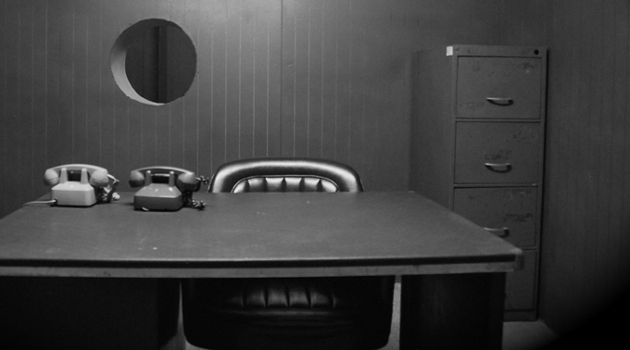I like watching true-life whodunnits. I’m particularly fond of NBC’s Dateline. It’s my secret lowbrow television pleasure (along with Say Yes to the Dress, but that’s for another post). In general I like hearing other people’s stories. But with true-life crime you spend an hour learning about a bizarre, hideous murder of an often unusually endearing person in some part of the country very far from where you live. I guess the secret dirty pleasure part comes in because watching true-life murder mysteries are a sort of cathartic experience: my life isn’t as bad as that person’s. At least someone didn’t kill me. Nor have I been accused of murder.
The part of the show that most piques my interest happens when police investigators haul the suspect into the interrogation room. The scenes are high anxiety as investigators try to buddy up with the suspect and get definitive proof while the suspect tries to evade the truth and not give herself away. Secret camera video footage often captures a person out-of-sorts, divided between herself and what she’s done. I can relate.
Often when I tell people I write creative nonfiction, specifically memoir, a kind of anxious interrogation begins: What is creative nonfiction? How can you be old enough to write a memoir (I’m 39)—and why would anyone care about your story? What are you writing about? I often feel like the suspect being secretly videoed in the interrogation room, trying not to give myself away as some kind of narcissist who thinks her life is so important that others want to read about it. There is an implicit assumption that I’ve got some kind of axe to grind against those closest to me, as if I feel the need to interrogate the people of my past. It always gives me pause, forcing me to think through, again, why I write what I write. Even more, I begin asking, why write at all? Why create any kind of art?
Like a suspect who never straightens out her story, I come up with a different answer every time, depending on the circumstances in which I find myself. This time it’s because I’ve been teaching undergraduates.
Memoir and essay seem less about interrogating the other and more about interrogating the self (maybe that’s why it’s often mischaracterized as “navel gazing,” a form of self obsession). When I teach memoir to undergraduates I remind them of this—memoir as interrogation of self—because they often make the beginner’s mistake of interrogating everyone but themselves, interrogating every idea except their own. It’s a mistake I often make in first drafts, and the writing normally turns out poor.
Maybe any kind of art-making is an interrogation of sorts. If art is a means by which we create meaning, and I think it is, the artist seems like the ultimate interrogator shining the spotlight first on herself and her own assumptions and then taking a wider and wider stance in wider and wider concentric circles, blowing it all up to find a singular truth. Like the Dateline murder mystery suspect who seems beside herself until the truth comes out, there seems to be a kind of karmic relief when the artist unveils her work. The spotlight is turned off and the dead can rest.
 Jennifer Ochstein is a writer and teacher living in Indiana. She has published book reviews with the “Brevity” and the “River Teeth Blog” as well as essays with Hippocampus Magazine, The Evening Street Review, Lindenwood Review and Connotation Press. Follow her at jenniferochstein.com.
Jennifer Ochstein is a writer and teacher living in Indiana. She has published book reviews with the “Brevity” and the “River Teeth Blog” as well as essays with Hippocampus Magazine, The Evening Street Review, Lindenwood Review and Connotation Press. Follow her at jenniferochstein.com.


0 comments on “The Memoir Writer Under Interrogation”